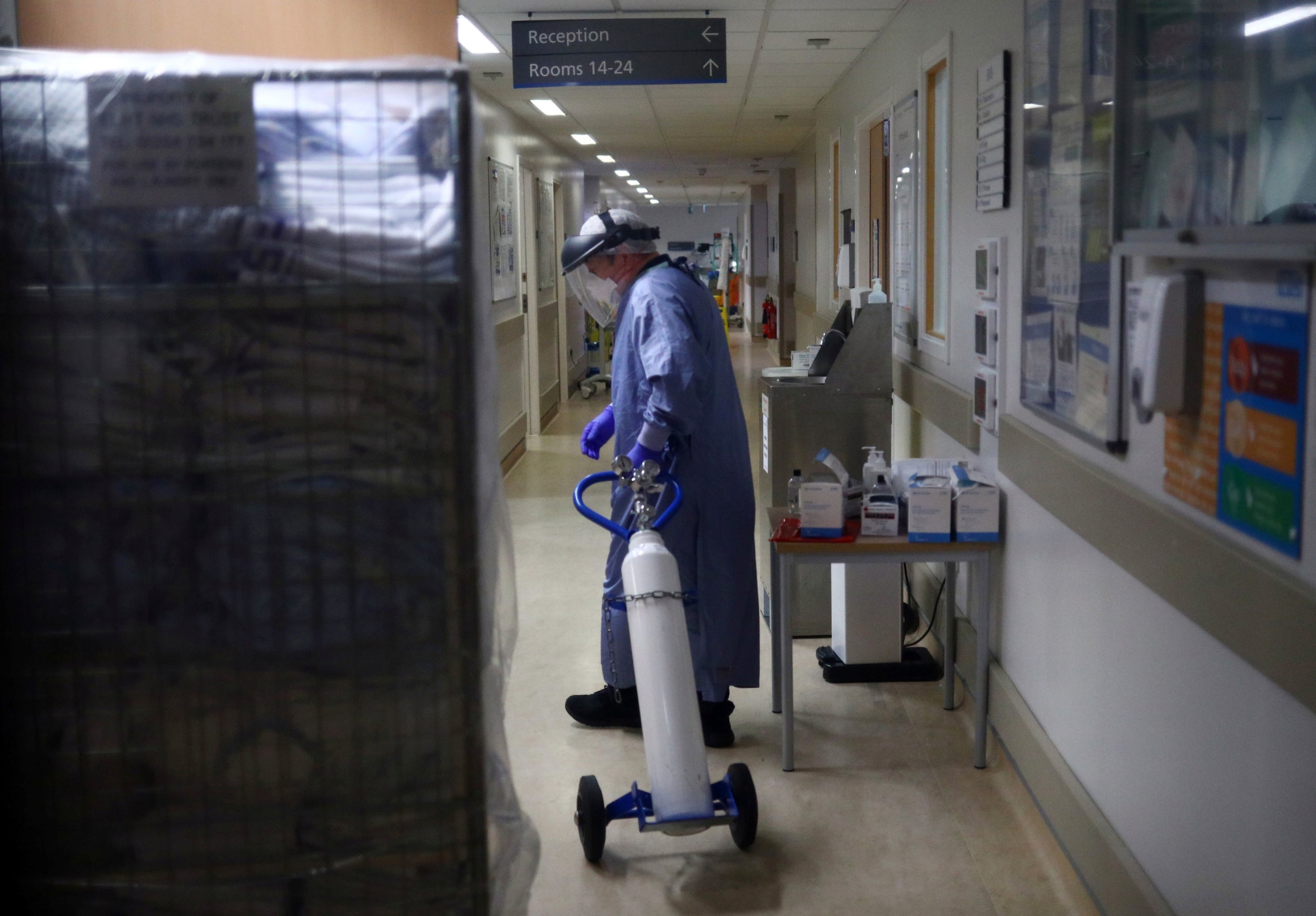Coronavirus: Oxygen supplies will be stretched as patients recover at home, NHS warns
Concerns raised for those recovering from Covid-19 after hospital stays as well as those with pre-existing respiratory conditions as demand increases

Your support helps us to tell the story
From reproductive rights to climate change to Big Tech, The Independent is on the ground when the story is developing. Whether it's investigating the financials of Elon Musk's pro-Trump PAC or producing our latest documentary, 'The A Word', which shines a light on the American women fighting for reproductive rights, we know how important it is to parse out the facts from the messaging.
At such a critical moment in US history, we need reporters on the ground. Your donation allows us to keep sending journalists to speak to both sides of the story.
The Independent is trusted by Americans across the entire political spectrum. And unlike many other quality news outlets, we choose not to lock Americans out of our reporting and analysis with paywalls. We believe quality journalism should be available to everyone, paid for by those who can afford it.
Your support makes all the difference.Demand for oxygen from Covid-19 patients recovering at home is set to place the NHS under strain, the health service has warned.
NHS England has issued guidance to out-of-hospital health providers on the extra demands likely to be placed on them given the number of people recovering after a hospital stay with the coronavirus.
It warns that the provision from its home oxygen services and community respiratory teams across the NHS is expected to be an issue as the scale of demand increases.
Andrew Whittamore, a practising GP and clinical lead for the Asthma UK and British Lung Foundation partnership, said concerns about the potential for hospitals to be overwhelmed in the early part of the pandemic had led to community oxygen teams being primed to take on more patients – but he described that ramping up as “a short-term fix”.
“We don’t know how long people are going to need oxygen or other services for,” he said. “There are definitely going to be extra patients added on to our community teams’ workloads.”
The needs of those already living with lung conditions before the Covid-19 pandemic are also a concern for health staff. “They will be getting less input for either safety reasons or because of the capacity of the service itself,” Dr Whittamore said.
People with pre-existing severe respiratory conditions have been instructed to shield during the pandemic as they are at high risk from Covid-19, but this may have led to a decrease in overall health and a greater need for services.
In a recent survey by the British Lung Foundation of 14,000 patients, 59 per cent of those with a lung condition who are shielding said they were less fit since lockdown began.
The Taskforce for Lung Health – of which the British Lung Foundation is a member – has raised particular concerns about access to pulmonary rehabilitation.
An education- and exercise-based treatment, which is proven to be more effective for lung patients than many drug-based treatments, and face-to-face classes have been suspended during the pandemic. It may be that such treatment would also be helpful for some patients recovering from Covid-19.
Jessica Eagleton, policy officer at the British Lung Foundation, said there had been issues with access to pulmonary rehabilitation for a long time, but the need to offer this form of support to people with lung conditions “has never been more pressing than it is now”.
The Taskforce suggests that increasing access to pulmonary rehabilitation for lung patients could save the NHS £69m every year, by avoiding exacerbations in their conditions. The cost of a single exacerbation for someone with chronic obstructive pulmonary disease is estimated to be approximately £175.
The NHS England guidance acknowledges that capacity and demand for pulmonary rehabilitation is likely to be stretched as more normal services resume, in part because some of those healthcare staff who would typically provide the service were moved into hospitals to help deal with the surge of coronavirus cases.
Join our commenting forum
Join thought-provoking conversations, follow other Independent readers and see their replies
Comments